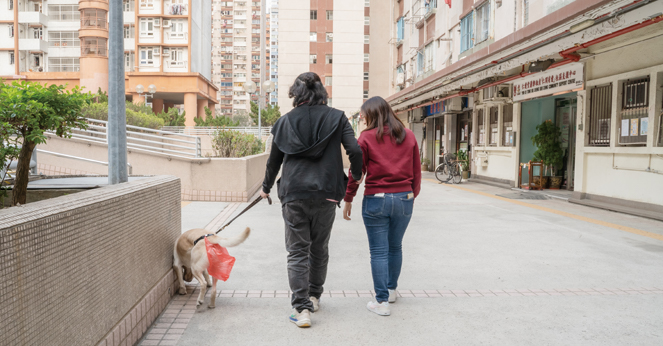A Visually Impaired Graduate Joined The CS Internship Programme with A Guide Gog
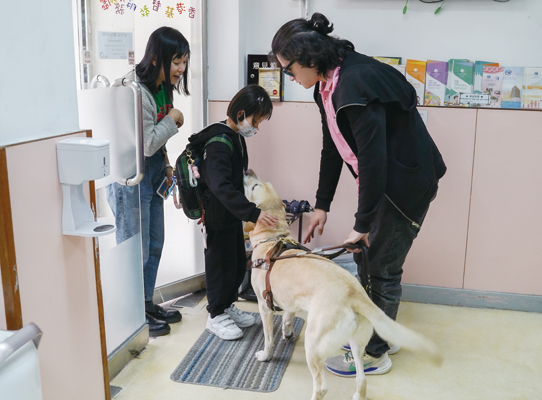
Curtis, a recent university graduate, is visually impaired. Earlier this year, he participated in the CS Inclusive Internship Programme (The Programme) and worked at the Yuen Long Early Education and Training Center with his guide dog, Pepper. When the children arrived at the centre, they were thrilled to meet Pepper. Curtis and Pepper engaged with the children and assisted with their training. The children asked interesting questions out of curiosity, such as "Does the dog need to brush its teeth?" and "Can we ride the dog?" Curtis chuckled and remarked, "It seems I’m quite popular." The centre became full of life.
He remembered that when he first arrived, the Centre-in-charge asked him, "What are your interests?" Curtis replied, "I want to try everything." But he then confessed that the underlying meaning of this was, 'I don't know my strengths at all. Even if you ask me, I can't tell you why, and maybe I am more confident about clerical work." Instead, the Centre-in-charge encouraged him, "You don't have to worry about setting a framework for yourself!"
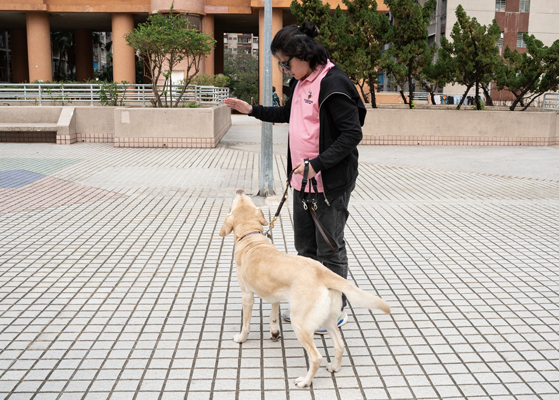
Suddenly Lost His Eyesight in Form 3
When Curtis was in the second semester of Form 3, he described a lot of spots coming out of his left eye, blocking his vision. At first, the doctor insisted that there was nothing wrong with the structure of his eyes. His parents comforted him and said that it might be caused by stress. Even the teacher accused him of pretending to be sick. Curtis felt helpless and discouraged. He struggled to make them understand his condition. Eventually, he was diagnosed with optic atrophy, causing him to lose his eyesight over several months.
After one year in a special school, Curtis entered a mainstream school with experience in supporting visually impaired students. "But it turned out that it may not be good," Curtis said bluntly. Teachers' misconceptions are still a thorn in his side: "Some visually impaired students participate in this interest group, and I think you should also join the group." Curtis felt uncomfortable. He felt that visual impairment is only a limitation of the senses and cannot defined by one person. Later, when he wanted to apply for a guide dog, the teacher strongly opposed him. The teacher asked him, "Why do you need it when other visually impaired students don't?" Curtis recalled.
Stereotypes And Stigma: The Biggest Barriers
The biggest barrier for people with disability is the way society stereotypes and disables them. Their main challenge is breaking free from these narrow constraints and being seen for who they truly are. This allows others to see themselves more clearly and enables individuals with disabilities to discover themselves.
This summer, Curtis interned in the Human Resources and Development Office. "They did not allow me to participate in different programs, just do some daily paperwork." He said, "They might not know what they could do for me or what I could do, and they worried about putting a lot of pressure on me. I had nothing to do, so some bosses found some meaningless job for me, making me feel even more uncomfortable."He suggested that companies collaborate with interns with disabilities to explore shared interest plans. "Not every visually impaired person wants to do the same thing. If so, this is not inclusion but uniformity," Curtis said bluntly.
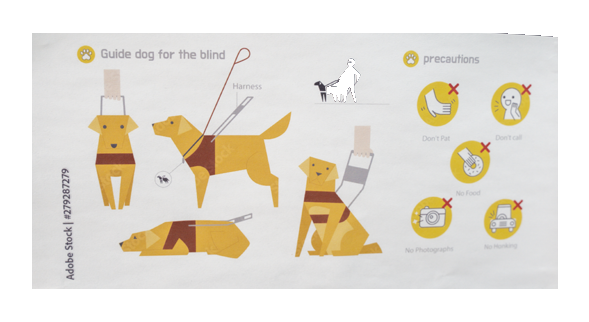
Being A Translator in the Early Education and Training Centre
He was surprised that a non-profit organization provided more opportunities than commercial companies. At the beginning of his internship, the center-in-charge of Yuen Long Early Education and Training Center discussed career development with Curtis. Considering Curtis's strong English skills, the Center-in-charge encouraged him to act as an interpreter for multicultural parents during group activities. Curtis responded, "I've never been a translator before, and I'm very nervous, but I believe I am qualified!"
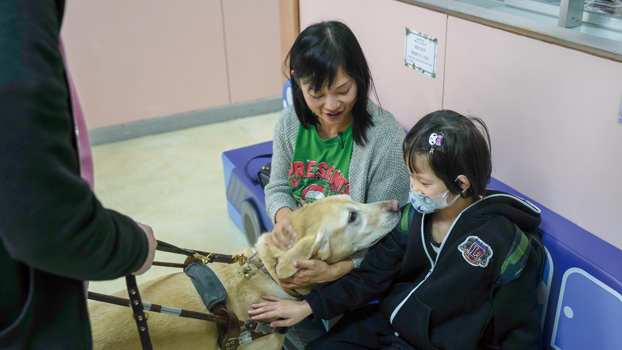
The children befriended Curtis and Pepper. "The children always try to help and show Curtis the way," Curtis shared. By participating in the Programme, he aimed to utilize his talents, learn to get along with different people and communicate his needs effectively. Colleagues encouraged Curtis to have more confidence in himself. "Colleagues often describe me as humble, but the truth is, I haven't fully recognized my strengths yet. But I can now see my accomplishments clearly, which is a big step." This experience is truly rewarding for him.
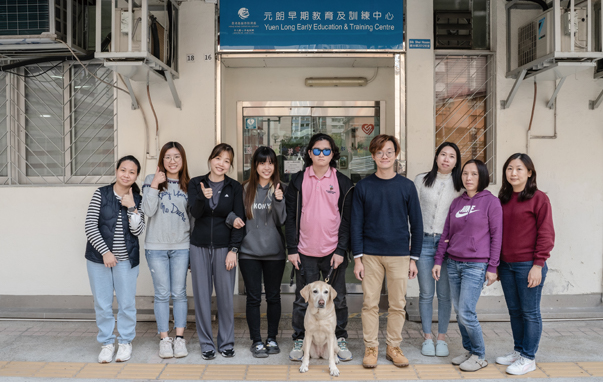
Provides More Diverse Opportunities for Disabled
He believes that whether people with disabilities can do what able-bodied people can do depends on whether society has sufficient resources, opportunities, and adjustments. The Programme hopes to provide more diverse exploration opportunities for people with disabilities and, at the same time, learn from them how to create an inclusive working environment. After the Scheme, Curtis joined our Project Bridge for Children's Development as a professional assistant.
